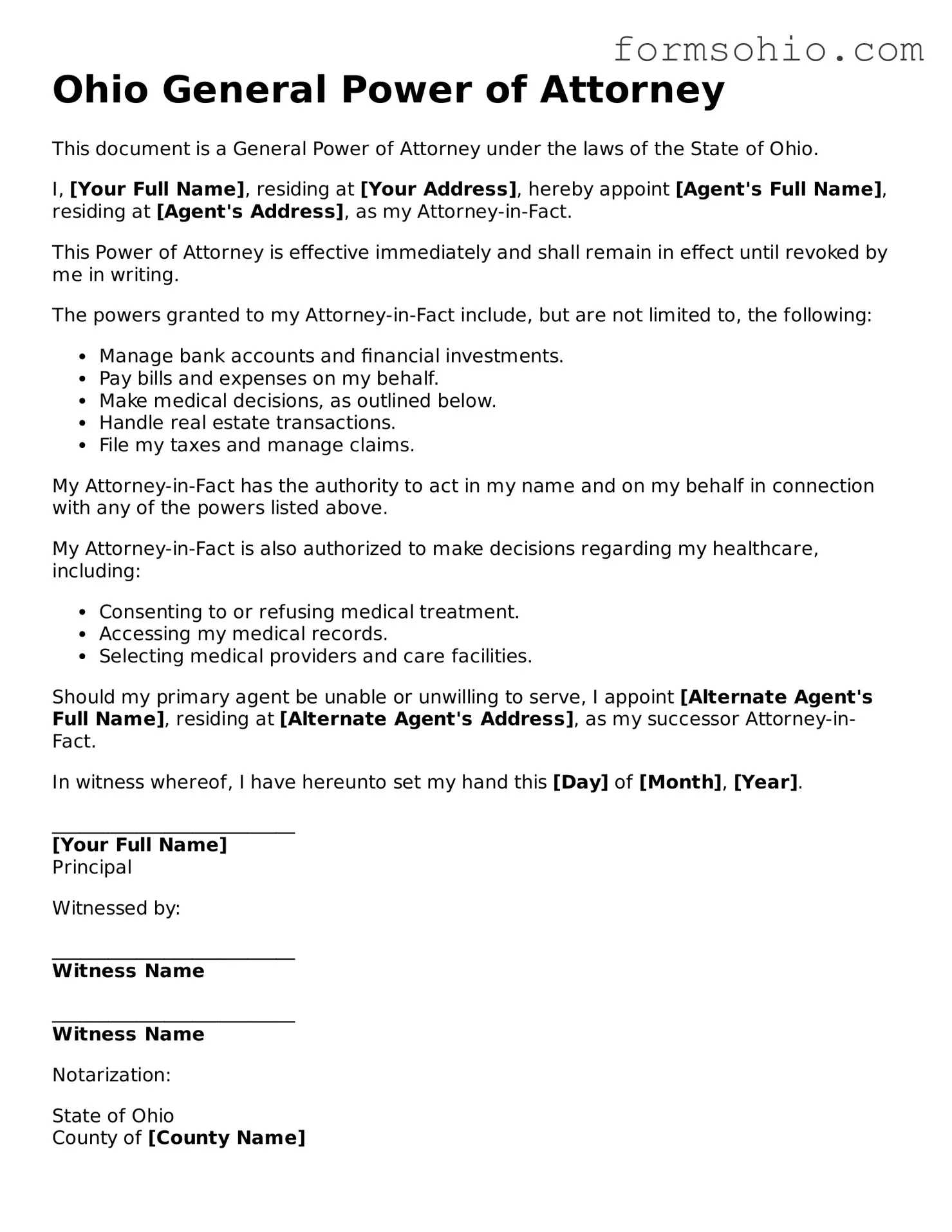Printable General Power of Attorney Template for the State of Ohio
The Ohio General Power of Attorney form is a legal document that allows an individual, known as the principal, to appoint another person, called the agent, to make decisions on their behalf. This authority can encompass a wide range of financial and legal matters, empowering the agent to act in the principal's best interest. Understanding the nuances of this form is essential for anyone considering its use, as it can significantly impact personal and financial affairs.
Get This Document Online

Printable General Power of Attorney Template for the State of Ohio
Get This Document Online
Complete this form efficiently and quickly
Complete General Power of Attorney online without printing hassles.
Get This Document Online
or
Free PDF File
